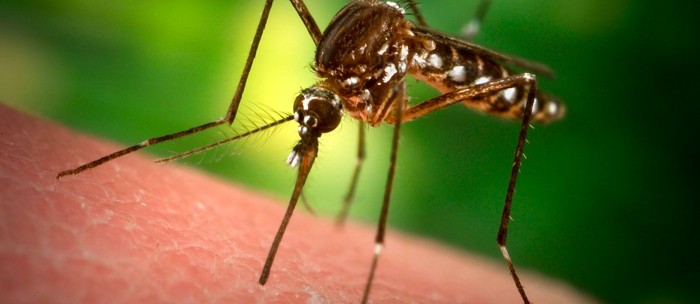
Mosquitoes are the most significant vector of disease in history and are responsible for more human deaths than any other animal. There are over 160 different types of mosquitoes, each with their own mating and feeding habits. The mosquito has readily adapted to urban life and is breeding in new sites. They are most likely to feed within a 100 foot radius of their breeding sites, but can fly as far as 1-1/2 miles to feed. Mosquitoes are attracted by scent, sight and heat.
Mosquitoes breed in areas where water is present and can spread diseases. In addition to their annoyance, controlling and repelling mosquitoes is essential to enjoying time outdoors and for minimizing the risk of contracting diseases carried by mosquitoes such as Dengue Fever, Encephalitis, Malaria, and dog-heartworm. Truly Nolen can help you reduce mosquito populations year round.
Inspect and Identify
Your Truly Nolen service begins with a customer interview then thoroughly inspects the exterior of your home for areas where mosquitoes are likely to breed. While stagnant water is the optimal breeding environment, mosquitoes can also breed in conditions with minimal moisture such as sprinkler heads or in algae buildup in gutters that have not been maintained.
The technician focuses on a 100 foot radius from the bite site, searching for mosquito-friendly conditions such as:
![]()
Stagnant water
Uncirculated lake, pond, fountain, retention basin, etc.
![]()
Moisture conditions
Flowerbeds, flower pot saucers, rock piles, unkempt gutters, sprinkler heads, shady areas, etc.
![]()
Resting sites
Surfaces that are protected from the wind and provide a high moisture level such as a patio area, dense foliage, under a building eave, etc.
Determine a Course of Action
Your Truly Nolen pest professional makes thorough notes of all findings and will invite you to participate in the inspection process. The technician then develops a site plan that outlines his or her findings and will communicate those findings and actions to you at the end of each visit.
Control and Prevent
Truly Nolen provides quarterly treatments year round with monthly service calls during peak mosquito season. Liquid material application and granules are applied in high moisture areas to control the development of larva in addition to sanitation and exclusionary measures needed to remove areas around the home.
The best protection from mosquito-transmitted diseases is to prevent exposure to mosquitoes.
- Keep doors and windows closed. Cover doors and windows with screens.
- Stay indoors at dusk and dawn, when mosquitoes are most active.
- If you must be outside when mosquitoes are active, cover up. Wear light-colored clothing, shoes, socks, long pants, and long sleeves.
- Apply insect repellent containing DEET to clothing and skin.
- Inspect your yards and drains. Dispose of bottles, cans, old tires, buckets, plastic swimming pools, birdbaths, or other debris that can hold standing water.
- Drain any standing sprinkler or rain water. Drain water from garbage cans, pool covers, coolers, toys, flower pots, or other containers where water has collected.
- Protect boats and vehicles from rain with tarps that don’t accumulate water.
- Repair leaky pipes.
- Maintain and clean roof gutters.
Additional Information
Mosquito Infestation
Mosquitoes live in a variety of habitats, but they are mainly concentrated near sources of standing water in order to reproduce because mosquito eggs need water in order to hatch. Some species lay their eggs in standing water, while other simply lay their eggs in moist soil and then hatch once the soil is flooded with water. These “floodwater” species lay eggs in the fall that can survive through the winter and then hatch once spring showers flood their habits. One female mosquito can lay up to 200 eggs at a time, which can allow for an infestation to quickly get out of hand.
